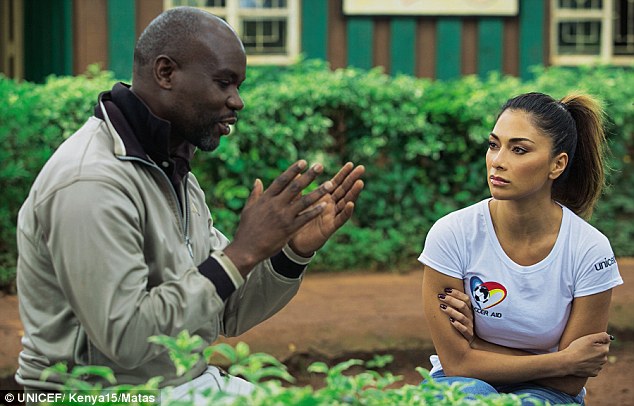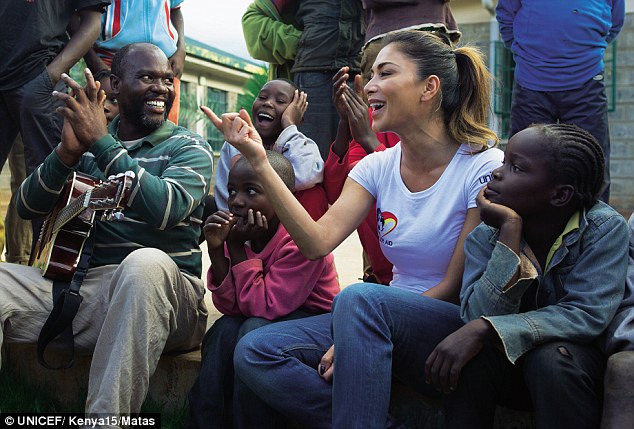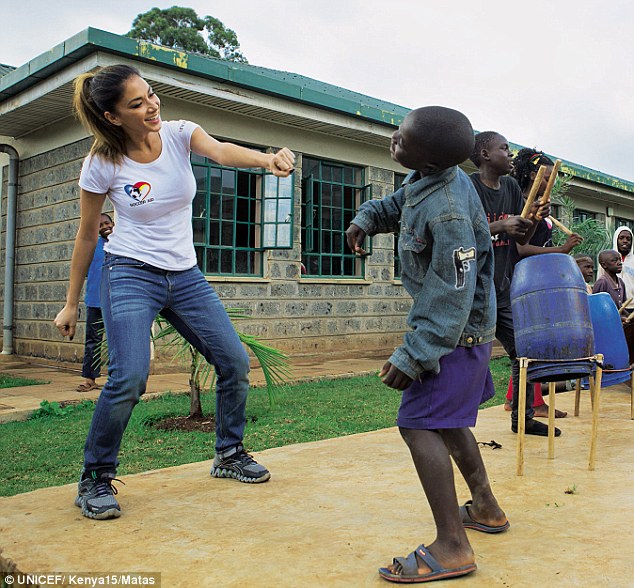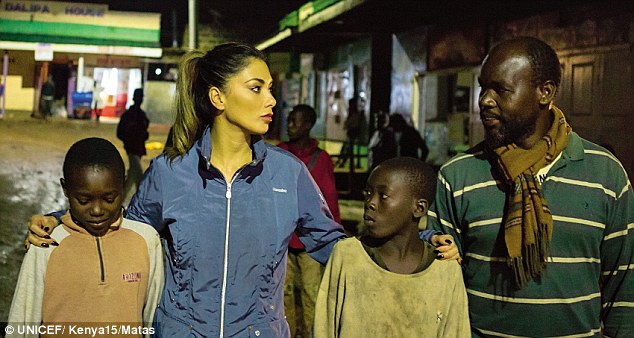 Nicole Scherzinger, singer, dancer and TV presenter, who became a household name as part of the Pussycat Dolls, has opened up about her charitable mission in Nairobi.
Nicole Scherzinger, singer, dancer and TV presenter, who became a household name as part of the Pussycat Dolls, has opened up about her charitable mission in Nairobi.
She recently spoke to Daily Mail writer, Jane Mulkerrins, to highlight an appeal she made recently in Kenya on behalf of the children’s charity Unicef.
Travelling to the slums of Nairobi last November, Nicole befriended children who sleep on the streets and spend their days in rubbish dumps, scratching a living by collecting bottles and cans, which they sell for recycling, and risking disease, violence and exploitation in the process.
‘These kids have no one in their lives to take care of them. They start – at the age of two, three, four – fending for themselves on the streets,’ says Nicole.
She admitted having initial feelings of trepidation and horror on arrival in Dagoretti, Nairobi.
‘They dropped me off outside a slum and I was, like, “Wait, I have to get out of the van? And go into that? Are you serious?”’ she said.
But Sam, a social worker at the Unicef-supported Amref children’s centre – where children aged from seven to 18 can receive hot meals and access basic education and healthcare – became her guide, and introduced her to some of the young people he works with.
Nicole’s visit to the slums of Nairobi was part of a film which focuses on George, a 12-year-old boy who sleeps on the cold concrete floor of the local market each night, waking up at 5am to start collecting plastic and scrap metal from rubbish dumps to sell.
On how she managed to gain the trust of children who are likely to be wary of outsiders, and persuade them to take part in a film, Nicole said, ‘All you can do is try to be respectful and giving, kind and loving; make them feel valued and not force yourself on them. They’ll come to you if they want.”
‘With George, I was just myself. I wasn’t fake and it wasn’t about cameras – it was about connecting with him on a human level.’
Which is not to say that she didn’t struggle with what she witnessed in the Nairobi slums.
‘This trip was unlike any other for me. One night I was so traumatised by what I’d seen that I couldn’t sleep. I asked one of the girls from Unicef, who I’d just met that day, to come and stay in my room with me. I thought, “If I’m frightened here, in this warm, safe hotel, then how must these kids feel out on the street?”’
Additional Reporting by Daily Mail
Some photos/Courtesy










